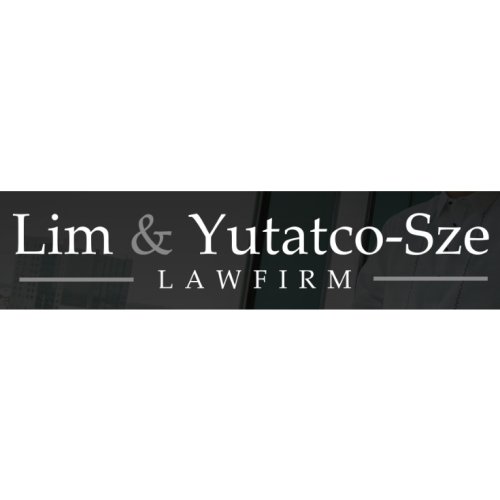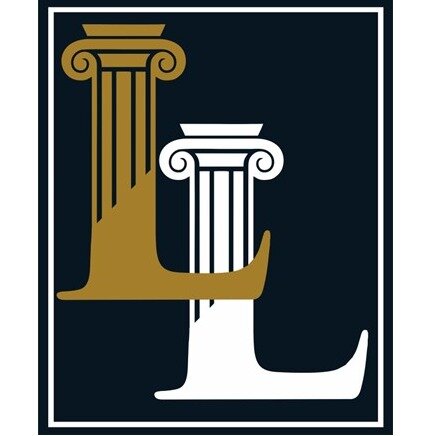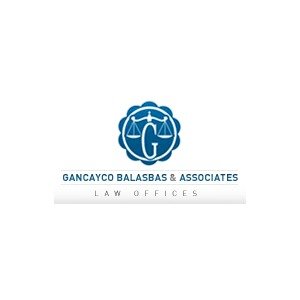Best Employment Benefits & Executive Compensation Lawyers in Manila
Share your needs with us, get contacted by law firms.
Free. Takes 2 min.
List of the best lawyers in Manila, Philippines
Philippines Employment Benefits & Executive Compensation Legal Questions answered by Lawyers
Browse our 1 legal question about Employment Benefits & Executive Compensation in Philippines and read the lawyer answers, or ask your own questions for free.
- The company I previously worked with said that I should submit my notarized quitclaim document before they give me my final paycheck. I witnessed that they did this to the previous employees too. Is that right?
- I am about to claim my final paycheck, and they emailed me a quitclaim form and gave instructions that I should submit this before claiming my final paycheck. I reviewed the quitclaim, and I am uncomfortable submitting it before reviewing my final paycheck to ensure I am compensated correctly.
-
Lawyer answer by Recososa Law Firm
Hello:What you are experiencing is a very common concern among employees in the Philippines. Under the Labor Code, your employer has the obligation to release your final pay which normally includes unpaid wages, pro-rated 13th month pay, and any unused...
Read full answer
About Employment Benefits & Executive Compensation Law in Manila, Philippines
Employment Benefits & Executive Compensation law in Manila, Philippines, encompasses a range of legal practices concerning the benefits and compensation that employees, particularly executives, receive from their employers. This area of law covers everything from health insurance, retirement plans, stock options, bonuses, severance packages, and more. These benefits are crucial components of an employment contract, often playing a significant role in attracting and retaining talent. The law is designed to protect the rights of employees while balancing the interests of employers.
Why You May Need a Lawyer
There are various reasons why you might need legal assistance regarding Employment Benefits & Executive Compensation. These include:
- Negotiating employment contracts or severance agreements.
- Ensuring compliance with local labor laws and regulations.
- Resolving disputes about benefits or compensation entitlements.
- Advising on the tax implications of various benefits.
- Handling cases of wrongful termination where compensation is involved.
Having a lawyer can help protect your rights and ensure you receive fair compensation as a part of your employment agreement.
Local Laws Overview
In Manila, Philippines, several key laws regulate Employment Benefits & Executive Compensation, including:
- Labor Code of the Philippines: Governs working conditions, benefits, and compensation for employees. It includes provisions on minimum wage, overtime pay, and holiday pay.
- Employee Retirement Income Security Act (ERISA): While ERISA is a U.S. federal law, its principles can guide Philippine practices for multinational companies.
- Social Security Act: Provides for social security benefits, including retirement and health insurance.
- Tax Code: Determines how employment benefits and compensation are taxed.
Understanding these laws is crucial in navigating and negotiating employment benefits and executive compensation structures.
Frequently Asked Questions
What are the basic benefits mandated by the Philippine Labor Code?
The Labor Code mandates benefits such as the 13th-month pay, overtime pay, night shift premiums, and holiday pay. Employers are also required to contribute to the Social Security System (SSS), Philippine Health Insurance Corporation (PhilHealth), and Home Development Mutual Fund (Pag-IBIG).
Can employers provide additional benefits beyond those mandated by law?
Yes, employers can offer additional benefits such as bonuses, health insurance, transportation allowances, and more. These are often outlined in employee contracts.
Is it possible to negotiate employment terms regarding executive compensation?
Executive compensation terms can often be negotiated. It's advisable to review contracts carefully and negotiate terms that are beneficial while ensuring compliance with applicable laws.
Are stock options a common part of executive compensation in the Philippines?
Yes, stock options can be a part of executive compensation packages, especially in multinational businesses or large corporations. They provide an incentive for executives to contribute to the company's success.
What should I do if I suspect discrimination in benefits or compensation?
If you suspect discrimination, it's important to consult with a lawyer who specializes in employment law to evaluate the situation and determine the best course of action.
What is the typical process for resolving a dispute about benefits in Manila?
Dispute resolution typically involves initial discussions between the employee and employer, mediation, and potentially litigation if a resolution is not reached. Legal advice is recommended throughout the process.
Are there regulations specific to executive severance packages?
Severance packages are often governed by employment contracts or company policies, but must comply with minimum requirements under Philippine law. Legal assistance can ensure these agreements are fair and lawful.
Can expatriates in the Philippines receive different benefit packages?
Expatriates may receive different benefits which align with their home country's standards or their employment contracts. However, they must still comply with local regulations.
How are benefits and compensation taxed in the Philippines?
Benefits and compensation are subject to specific tax treatments in the Philippines. Some benefits are considered taxable income, while others may be exempt. Understanding these nuances helps in proper financial planning.
Where can I file a complaint if I feel my employment benefits rights have been violated?
Complaints can be filed with the Department of Labor and Employment (DOLE) in the Philippines. Seeking legal advice helps in understanding the process and presenting your case effectively.
Additional Resources
Various resources can be helpful if you're navigating Employment Benefits & Executive Compensation, including:
- Department of Labor and Employment (DOLE): Offers resources and information on labor laws and your rights as an employee.
- National Labor Relations Commission (NLRC): Handles cases related to employment disputes.
- Integrated Bar of the Philippines (IBP): Provides legal assistance and can connect you with a lawyer specializing in Employment Benefits & Executive Compensation.
Next Steps
If you require legal assistance in Employment Benefits & Executive Compensation:
- Consider consulting with a lawyer specializing in employment law to discuss your situation.
- Gather all relevant documentation, including employment contracts, benefits statements, and any correspondence related to your issue.
- Utilize resources such as DOLE or NLRC for initial guidance and to understand your rights under the law.
- Stay informed about your benefits and compensation rights to advocate for Fair treatment in the workplace confidently.
Acting proactively can help ensure that your rights are protected, and you receive the benefits and compensation you are entitled to under your employment.
Lawzana helps you find the best lawyers and law firms in Manila through a curated and pre-screened list of qualified legal professionals. Our platform offers rankings and detailed profiles of attorneys and law firms, allowing you to compare based on practice areas, including Employment Benefits & Executive Compensation, experience, and client feedback.
Each profile includes a description of the firm's areas of practice, client reviews, team members and partners, year of establishment, spoken languages, office locations, contact information, social media presence, and any published articles or resources. Most firms on our platform speak English and are experienced in both local and international legal matters.
Get a quote from top-rated law firms in Manila, Philippines — quickly, securely, and without unnecessary hassle.
Disclaimer:
The information provided on this page is for general informational purposes only and does not constitute legal advice. While we strive to ensure the accuracy and relevance of the content, legal information may change over time, and interpretations of the law can vary. You should always consult with a qualified legal professional for advice specific to your situation.
We disclaim all liability for actions taken or not taken based on the content of this page. If you believe any information is incorrect or outdated, please contact us, and we will review and update it where appropriate.

















